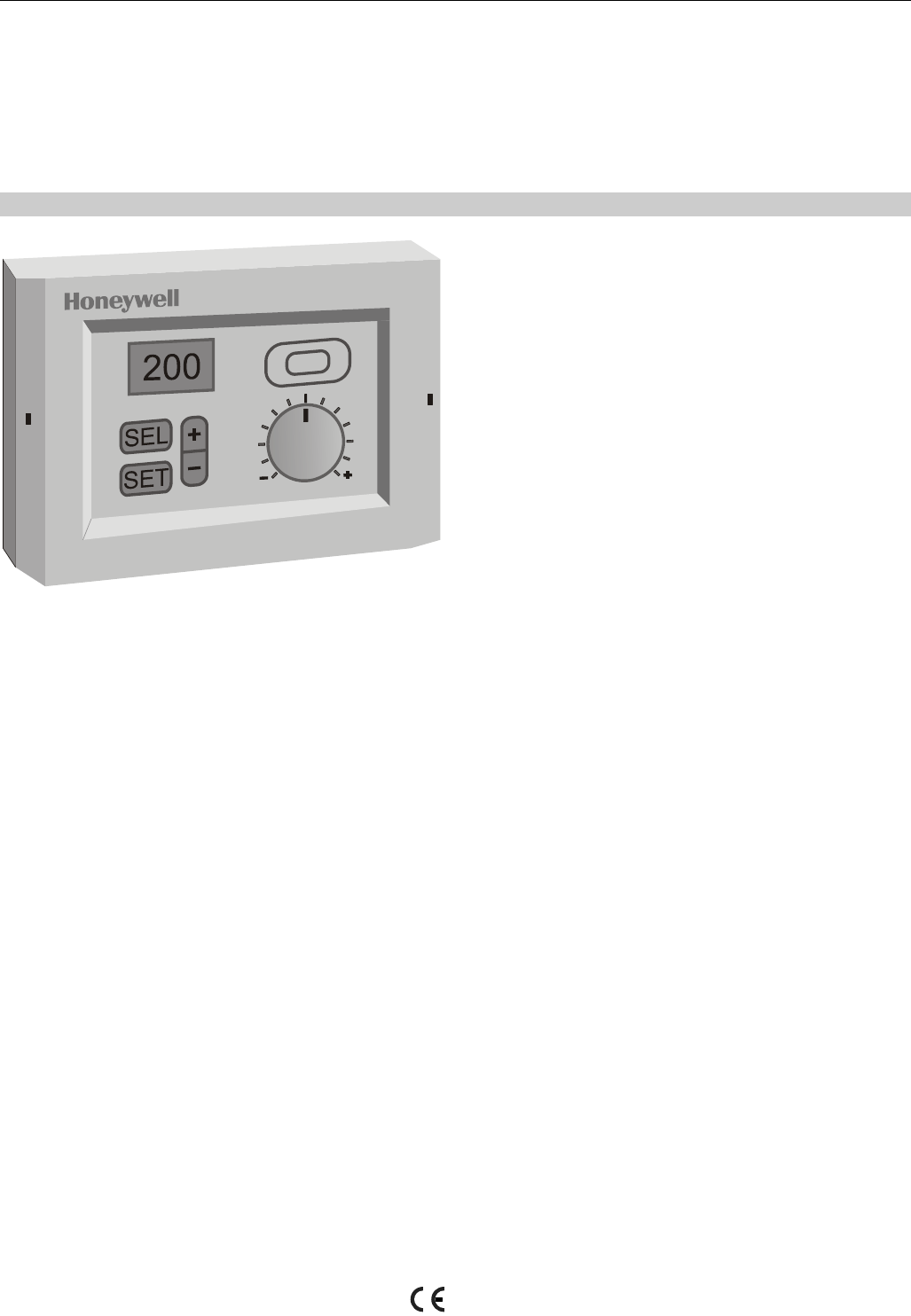
HONEYWELL
Copyright © 2007 Honeywell GmbH All Rights Reserved EN1B-0203GE51 R0507C
R7426A,B,C
TEMPERATURE CONTROLLER
WITH AND WITHOUT REAL-TIME CLOCK
INSTALLATION & START-UP INSTRUCTIONS
Fig. 1. Temperature Controller
Contents
General................................................................................ 1
Before Installation Note ....................................................... 1
Mounting.............................................................................. 1
Wiring .................................................................................. 2
Power Supply and Grounding.............................................. 2
Configuration and Control Parameters ................................ 3
Configuration Settings ......................................................... 6
Parameter Settings and Adjustment .................................... 8
Operating Overview............................................................11
Notes (with RTC, only)....................................................... 19
GENERAL
This document provides instructions and procedures for
installing and starting up the Micronik 200 R7426A,B,C
controllers. No special tools are required for mounting and
installation. The user interface and liquid-crystal display allow
accurate and easy parameter setting and output adjustment.
BEFORE INSTALLATION NOTE
• Visually inspect equipment for shipping damage.
Report any damage to the appropriate Honeywell
representative.
• Refer to job drawings for specific installation
information and mounting location.
• Verify the controllers will be adequately separated
from the main power supply, relays, or other equip-
ment which can possibly generate electromagnetic
interference.
• Verify that the ambient temperature and the humidity
at the controllers will not exceed 0...50°C (32...122°F)
and 5 to 95% rh.
• Use shielded wiring in areas with high EMI.
• All wiring should be separated from power lines by at
least 150 mm (6’’).
• Do not install controllers near frequency converters
or other high-frequency sources.
MOUNTING
The controllers can be mounted in an electric cabinet or other
suitable enclosure. They are suitable for back panel, DIN rail,
wall, or front panel mounting. The corresponding mounting
sequence, as well as dimensions and panel cut-out, are
illustrated in the mounting instruction sheet EN1B-0202GE51
supplied with the controllers.
If the compensation sensor signal (T3) is received from
another controller (parallel connection of compensation
sensor inputs), the jumper W303 has to be cut before
mounting the controller (see Fig. 2). This disconnects the
sensor from the internal power supply.
MicroniK 200
